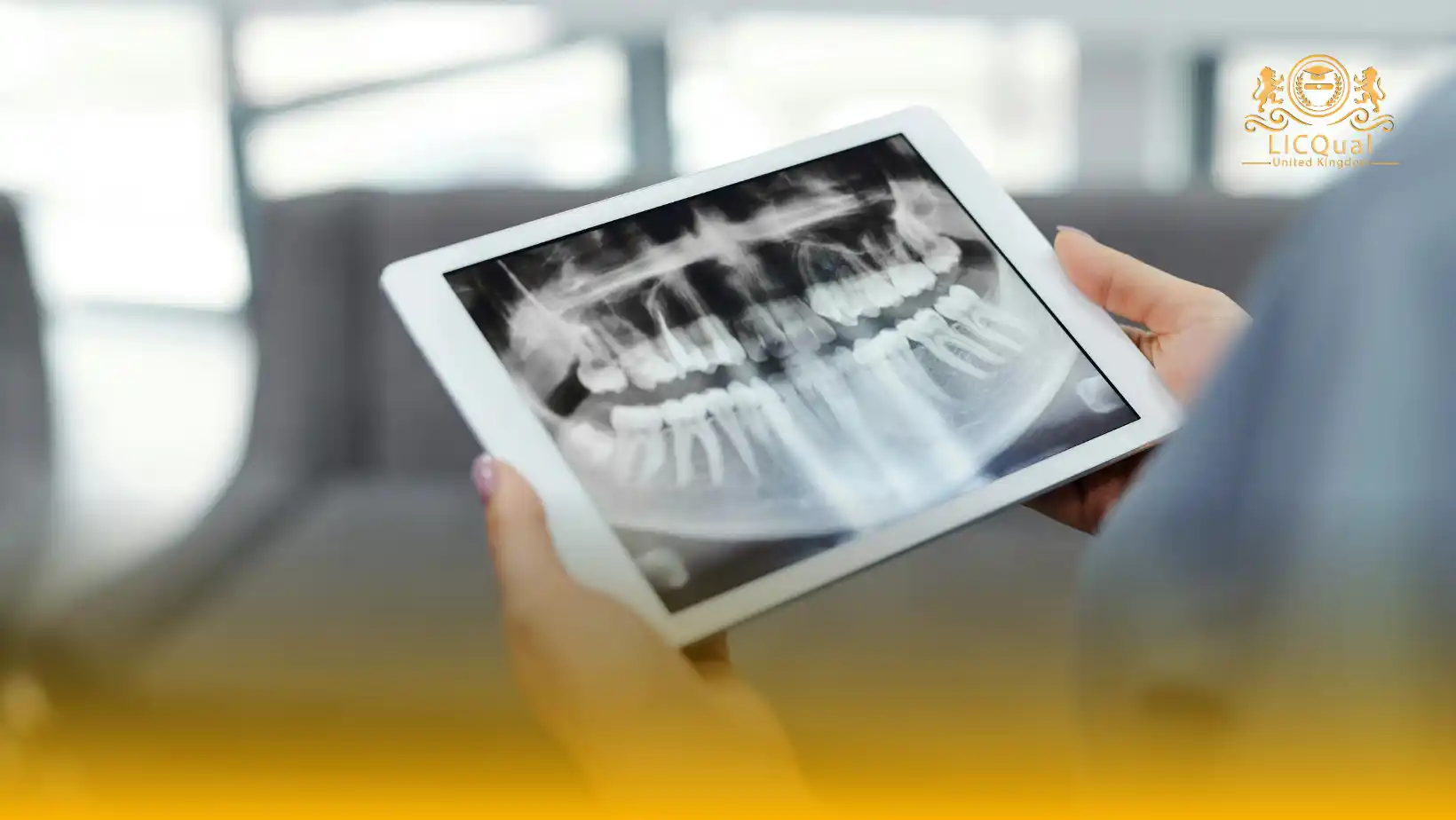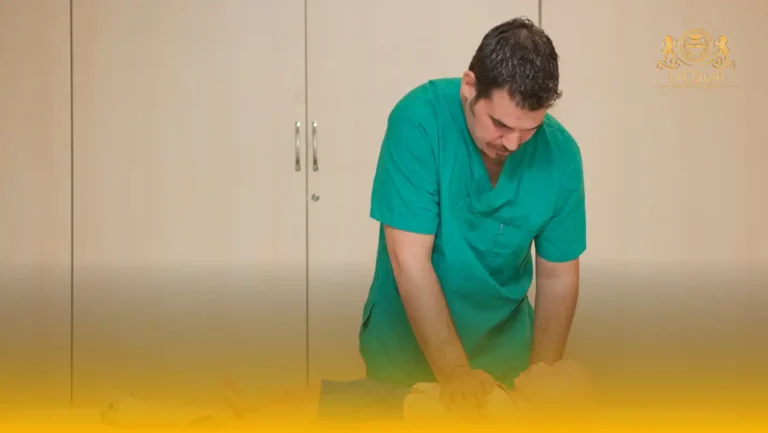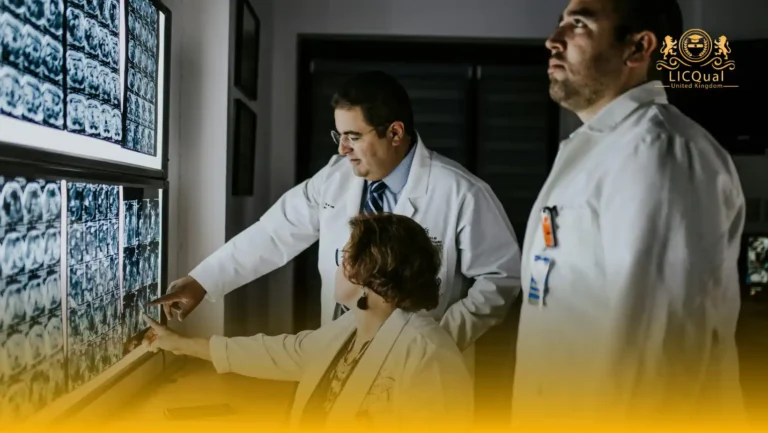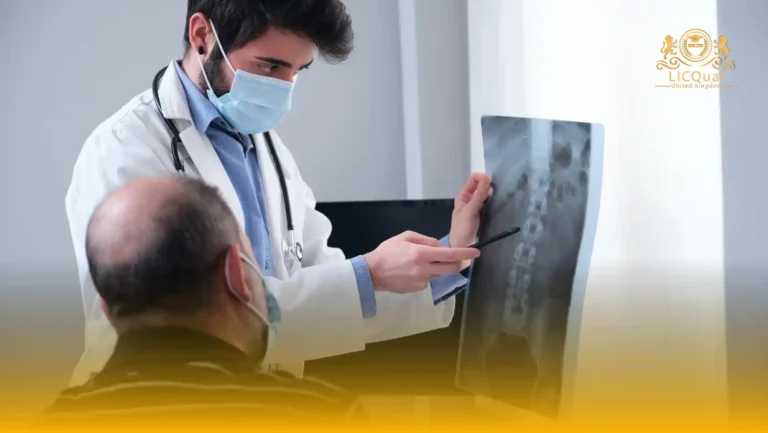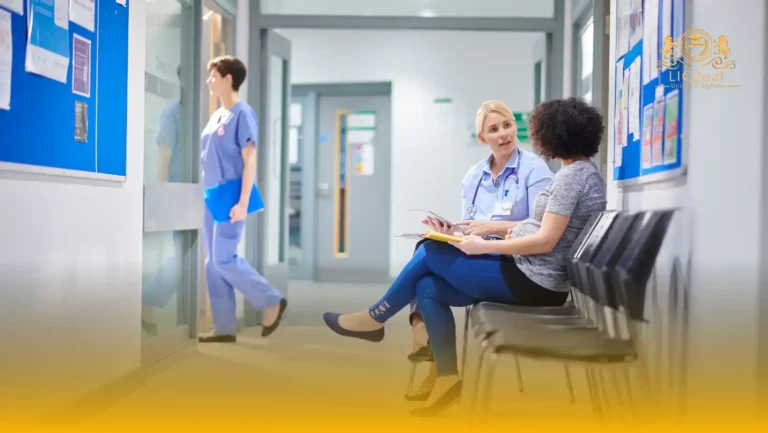The LICQual Level 6 Diploma in Dental Radiology (Dip Dental Radiology) is a highly specialised qualification designed for dental professionals seeking to advance their expertise in dental imaging and radiographic diagnostics. This Level 6 diploma is not intended for fresh entrants to the dental profession but is aimed at experienced practitioners who wish to enhance their clinical skills, expand their knowledge, and improve their career prospects.
Learners undertaking this qualification will gain a comprehensive understanding of advanced dental radiology techniques, including intraoral and extraoral imaging, interpretation of radiographs, and the application of radiation safety principles. The programme combines in-depth theoretical knowledge with practical, hands-on training, ensuring learners develop the critical skills required to provide accurate diagnostics while adhering to professional safety standards. Additionally, the course contributes significantly to Continuing Professional Development (CPD), supporting learners in maintaining up-to-date competencies and achieving excellence in dental radiology.
Centres delivering the LICQual Level 6 Diploma in Dental Radiology are required to maintain the highest standards to ensure learner success. This includes employing competent and qualified staff, providing access to well-equipped radiology facilities, and ensuring all necessary instruments, imaging equipment, and resources are available for practical training. Such measures guarantee a high-quality, engaging learning experience that enables learners to confidently apply their knowledge in real-world clinical settings.
Whether you aim to specialise in diagnostic imaging, improve patient care, or strengthen your professional credentials, this diploma offers a structured pathway for ambitious dental professionals committed to excellence in dental radiology.
Course Overview
Qualification Title
LICQual Level 6 Diploma in Dental Radiology (Dip Dental Radiology)
Total Units
6
Total Credits
120
GLH
480
Qualification #
LICQ2200680
Qualification Specification
To enroll in the LICQual Level 6 Diploma in Dental Radiology (Dip Dental Radiology), applicants must meet the following criteria:
|
Qualification# |
Unit Title |
Credits |
GLH |
|---|---|---|---|
|
LICQ2200680-1 |
Principles of Dental Radiology |
20 |
80 |
|
LICQ2200680-2 |
Intraoral Radiography Techniques |
20 |
80 |
|
LICQ2200680-3 |
Extraoral Radiography and Advanced Imaging |
20 |
80 |
|
LICQ2200680-4 |
Radiographic Interpretation and Diagnosis |
20 |
80 |
|
LICQ2200680-5 |
Evidence-Based Practice and Research in Dental Radiology |
20 |
80 |
|
LICQ2200680-6 |
Professional Practice, Ethics, and CPD |
20 |
80 |
By the end of this course, learners will be able to:
Unit 1: Principles of Dental Radiology
- Demonstrate a comprehensive understanding of dental radiology principles, including X-ray physics and imaging techniques.
- Analyse the role of radiology in diagnosis and treatment planning.
- Evaluate radiation biology, safety regulations, and protection protocols.
- Apply theoretical knowledge to support clinical decision-making in dental imaging.
Unit 2: Intraoral Radiography Techniques
- Perform and interpret intraoral radiographs, including periapical, bitewing, and occlusal images.
- Apply correct patient positioning, exposure settings, and quality assessment.
- Implement radiation protection protocols for patients and staff.
- Evaluate and improve image quality to ensure diagnostic accuracy.
Unit 3: Extraoral Radiography and Advanced Imaging
- Perform and interpret extraoral radiographs, including panoramic, cephalometric, and cone beam CT images.
- Integrate advanced imaging modalities into clinical treatment planning.
- Assess the advantages and limitations of different radiographic techniques.
- Apply imaging findings to support complex diagnostic and treatment decisions.
Unit 4: Radiographic Interpretation and Diagnosis
- Analyse radiographic images to identify normal anatomy and pathological conditions.
- Diagnose dental diseases and abnormalities using radiographic evidence.
- Correlate radiographic findings with clinical examination and patient history.
- Apply critical thinking and clinical reasoning in radiographic diagnosis.
Unit 5: Evidence-Based Practice and Research in Dental Radiology
- Critically appraise contemporary research and literature in dental radiology.
- Apply evidence-based principles to enhance diagnostic accuracy and patient care.
- Conduct small-scale research or audits relevant to radiology practice.
- Analyse findings to inform improvements in professional practice.
Unit 6: Professional Practice, Ethics, and CPD
- Demonstrate understanding of ethical, legal, and professional responsibilities in dental radiology.
- Implement best practices in patient communication, consent, and clinical governance.
- Develop and maintain a personal CPD plan to support ongoing professional growth.
- Reflect on practice to enhance clinical skills and patient outcomes.
The LICQual Level 6 Diploma in Dental Radiology (Dip Dental Radiology) is designed for dental professionals, graduates, and healthcare practitioners who want to specialize in diagnostic imaging and radiographic interpretation. This Dental Radiology Level 6 diploma is ideal for those seeking to enhance their clinical expertise, improve patient outcomes, and gain an internationally recognized qualification. Whether you are a practicing dentist, a recent graduate, or a public health professional, this accredited Dental Radiology diploma provides the skills and credibility to advance your career.
1. Practicing Dentists Seeking Radiology Expertise
- Dentists aiming to specialize in dental imaging and diagnostics
- Professionals who want to expand treatment accuracy with radiology
- Those seeking an internationally recognized Dip Dental Radiology qualification
- Practitioners interested in CBCT, panoramic, and intraoral imaging
- Dentists looking to enhance patient trust through advanced diagnostics
2. Recent Dental Graduates
- Fresh graduates eager to specialize early in Dental Radiology
- Students seeking a career‑boosting postgraduate diploma
- Graduates who want to stand out in a competitive dental job market
- Learners looking for flexible online Dental Radiology courses
- Young professionals aiming for global recognition in dentistry
3. International Dental Professionals
- Dentists from Pakistan, UK, Middle East, and worldwide
- Professionals seeking a globally accredited Dental Radiology diploma
- Those who want to study through a flexible online format
- Practitioners aiming to meet international radiology standards
- Dentists looking to expand career opportunities abroad
4. Dental Specialists Expanding Skills
- Prosthodontists, orthodontists, and endodontists adding radiology expertise
- Specialists aiming to broaden diagnostic capabilities
- Professionals seeking continuing professional development (CPD)
- Those who want to integrate radiology into existing practice
- Dentists pursuing multi‑disciplinary collaboration
5. Academic and Teaching Professionals
- Dental educators seeking updated radiology knowledge
- Academics aiming to enhance teaching credentials
- Trainers who want to mentor future dental radiologists
- Researchers looking for internationally recognized qualifications
- Educators seeking evidence‑based radiology training
6. Healthcare Professionals in Diagnostic Care
- Allied health professionals interested in dental imaging training
- Radiology technicians aiming to expand into dental specialization
- Community health workers supporting oral diagnostic programs
- Professionals collaborating with dental radiology specialists
- Practitioners working in oral rehabilitation and diagnostics
7. Career‑Focused Dental Practitioners
- Dentists aiming for career advancement in Dental Radiology
- Professionals looking to increase credibility and recognition
- Practitioners seeking higher earning potential through specialization
- Dentists preparing for leadership roles in clinics and institutions
- Professionals committed to lifelong learning and excellence
To ensure learners receive high-quality training and achieve successful outcomes, centres delivering the LICQual Level 6 Diploma in Dental Radiology must meet rigorous standards. These requirements include:
- Qualified and Competent Staff: Centres must employ experienced and appropriately qualified dental educators with expertise in dental radiology, imaging techniques, and diagnostic interpretation.
- Clinical and Imaging Facilities: Centres should provide fully equipped radiology clinics or practical environments that allow learners to safely perform intraoral and extraoral imaging procedures.
- Access to Required Materials and Equipment: All necessary radiographic equipment, imaging software, protective gear, and resources must be available to support hands-on training.
- Teaching and Learning Resources: Centres must provide access to up-to-date textbooks, journals, digital tools, and research materials to support theoretical learning and evidence-based practice.
- Compliance with Health and Safety Standards: Centres must adhere to all relevant radiation safety and infection control regulations to ensure a safe and professional learning environment.
- Assessment and Quality Assurance: Centres must implement robust systems to monitor learner progress, conduct assessments, and maintain quality assurance in line with international standards.
- Support for Learners’ CPD: Centres should encourage and facilitate Continuing Professional Development, enabling learners to apply new knowledge and skills effectively in clinical practice.
Meeting these centre requirements ensures learners gain comprehensive theoretical knowledge, practical radiographic skills, and professional competence, fully aligned with international standards for Level 6 dental radiology training.
Assessment and Verification
All units within this qualification are subject to internal assessment by the approved centre and external verification by LICQual. The qualification follows a criterion-referenced assessment approach, ensuring that learners meet all specified learning outcomes.
To achieve a ‘Pass’ in any unit, learners must provide valid, sufficient, and authentic evidence demonstrating their attainment of all learning outcomes and compliance with the prescribed assessment criteria. The Assessor is responsible for evaluating the evidence and determining whether the learner has successfully met the required standards.
Assessors must maintain a clear and comprehensive audit trail, documenting the basis for their assessment decisions to ensure transparency, consistency, and compliance with quality assurance requirements.

